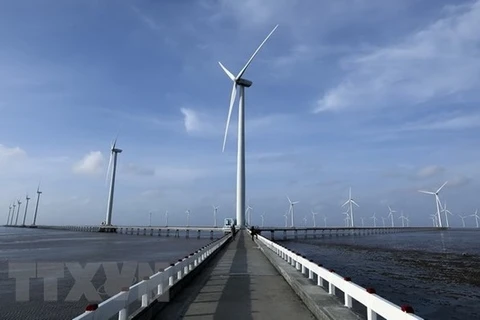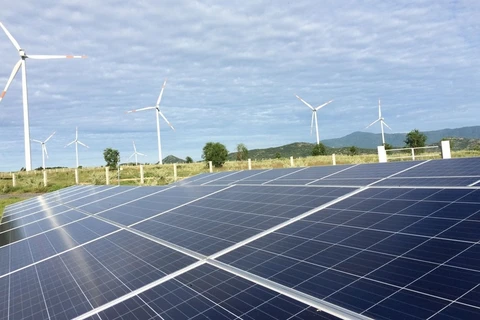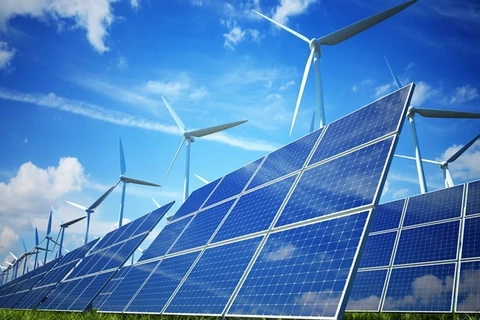Hanoi (VNA) – Vietnam needs to step up the approval of big projects and those supporting green growth in order to achieve the target of carbon neutrality by 2050, according to Kazuo Kusakabe, Chief Representative of Toshiba Asia Pacific Pte Ltd in Hanoi.
Speaking at a forum on measures to boost post-COVID-19 cooperation between Vietnam and Japan towards green growth organised by the Central Institute for Economic Management (CIEM) under the Ministry of Planning and Investment (MPI) on February 15, Kusakabe said climate change is a challenge for the world, including Vietnam.
CIEM Director Tran Thi Hong Minh said, to address challenges caused by climate change toward green growth after the COVID-19 pandemic, it is necessary to strengthen international cooperation.
As one of the most vulnerable countries by climate change, Vietnam has been proactive in proposing many solutions to minimise the impacts of climate change, including its commitment to net-zero emissions by 2050 at the 26th United Nations Climate Change Conference (COP26) in the UK, she said.
To solve challenges related to climate change, Vietnam has carried out cooperation programmes with Japan, especially in terms of green growth, Minh said, noting that these activities have produced many important results, especially in the fields of investment, import-export, sustainable infrastructure development, and human resource development.
According to reports from the MPI’s Foreign Investment Agency, Japan has always been one of the largest foreign investors in Vietnam. Key areas with great potential for cooperation between Vietnam and Japan include electrical and electronic equipment, wooden architecture, wind power, biomass and solar power, organic aquaculture and farming.
Nguyen Anh Duong, Director of the CIEM's General Research Department, said Japan and Vietnam can consider four orientations to promote cooperation towards green growth in the coming time, focusing on improving institutional capacity, regulations, and policies related to green growth; developing sustainable infrastructure in Vietnam; promoting low-carbon and low-emission value chains; and developing international treaties, rules and international standards related to green growth.
According to Dr. Vo Tri Thanh, Director of the Institute for Brand and Competitiveness Strategy, Vietnam needs to boost international cooperation and roll out measures to mobilise domestic and international private capital to complete its target of net-zero emissions by 2050.
Participants at the forum discussed and analysed new domestic and international trends and motivations to promote green growth efforts in Vietnam. They also proposed recommendations to further expand cooperation between the two countries./.























